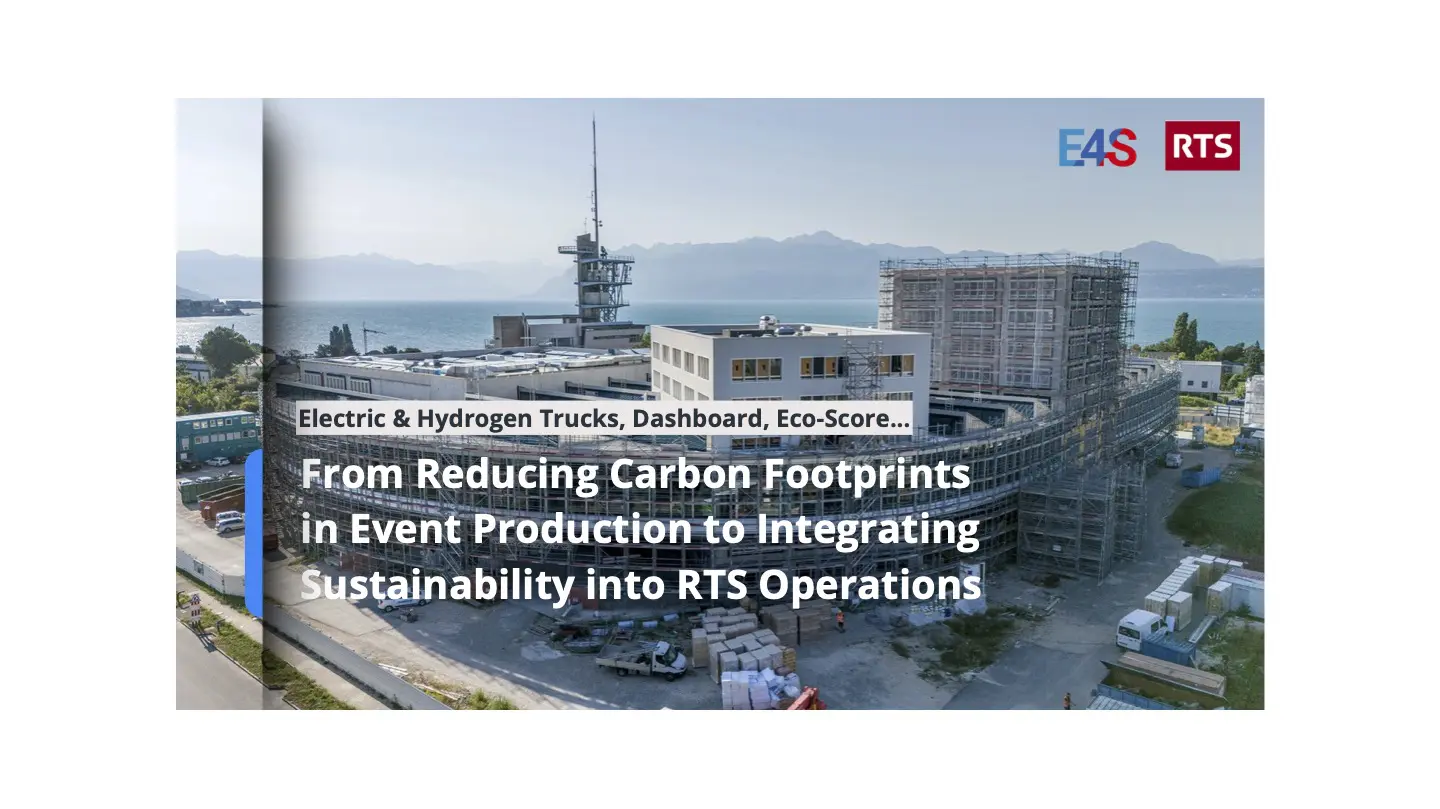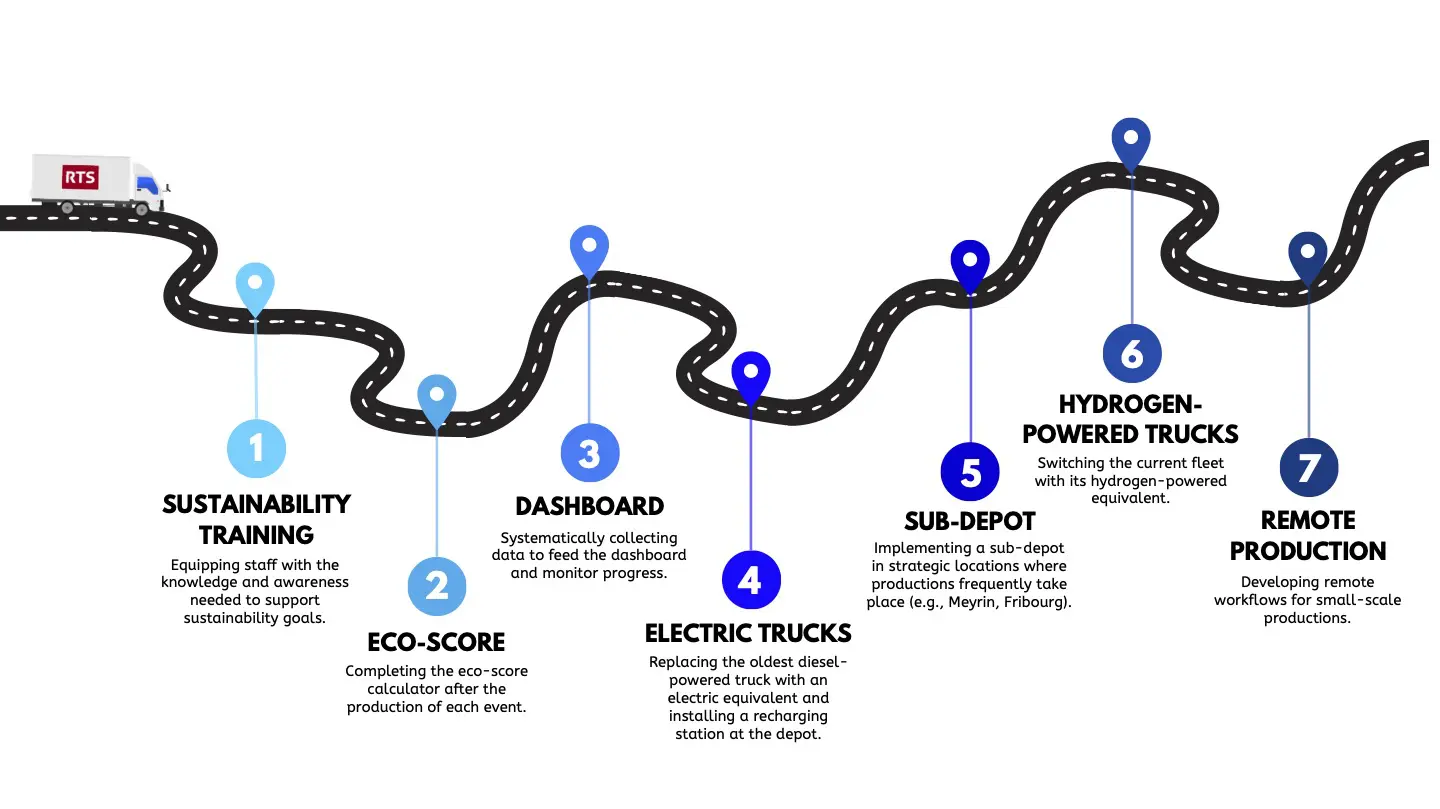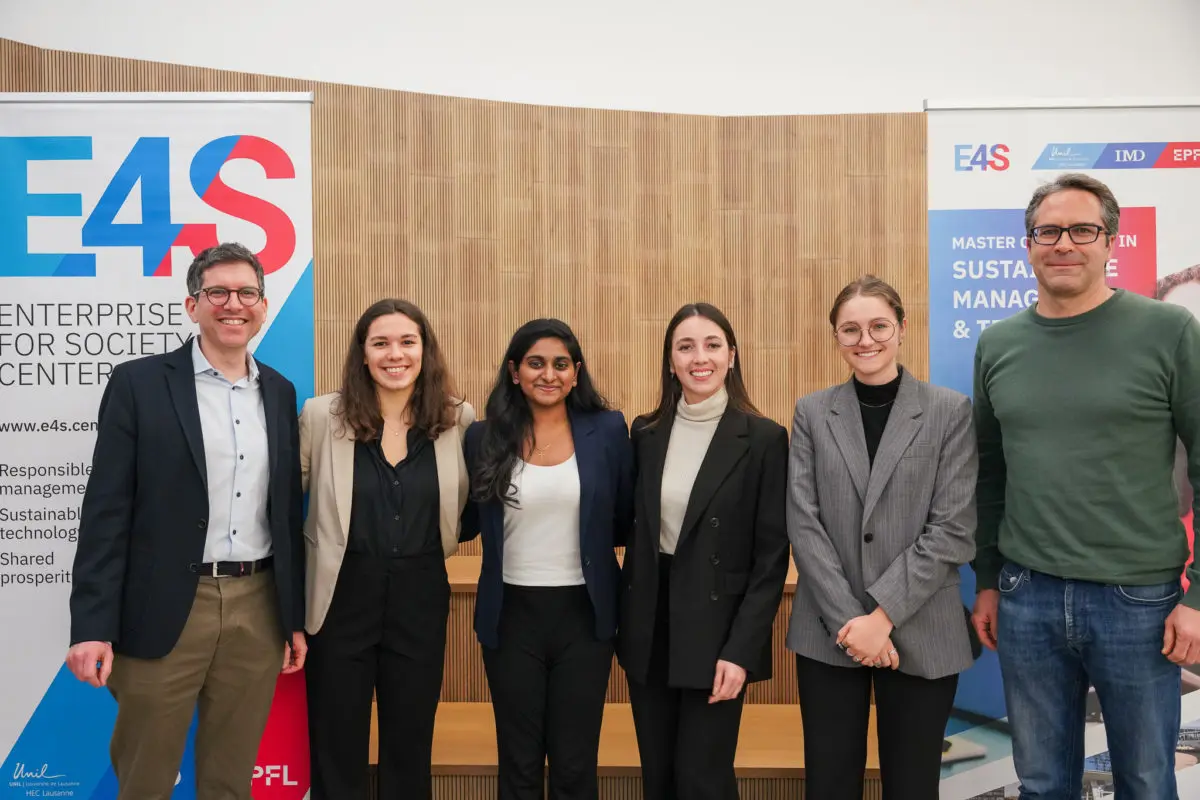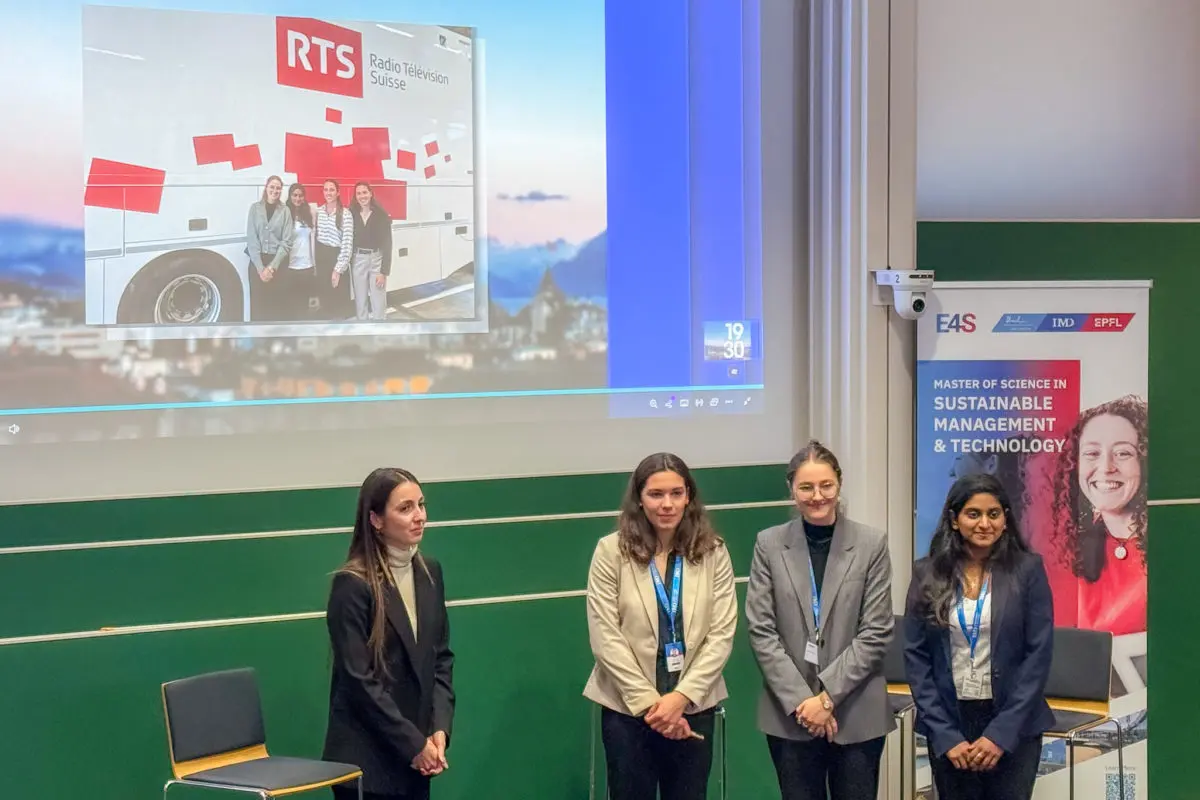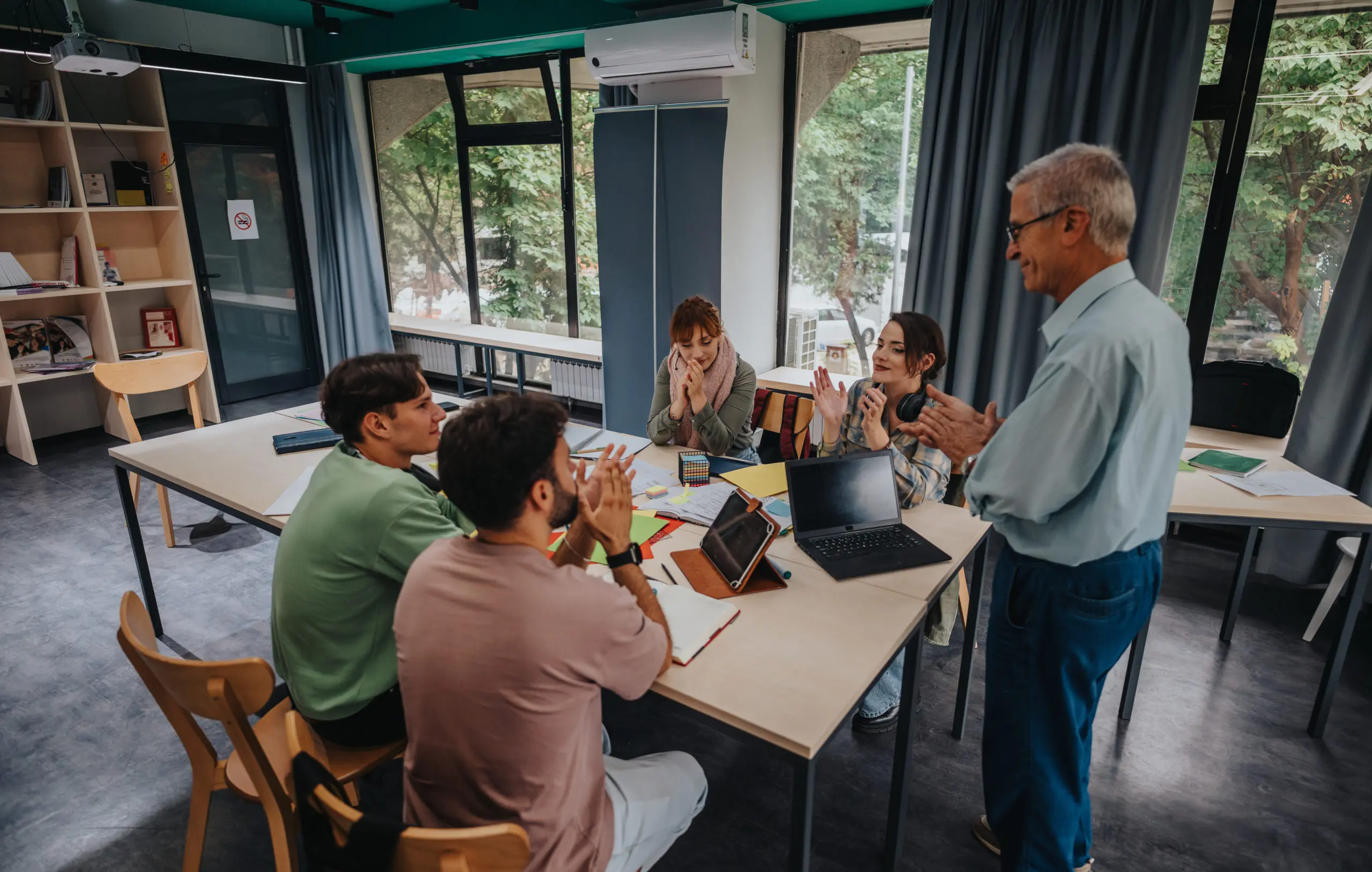
RTS: From Reducing Carbon Footprints in Event Production to Integrating Sustainability into RTS Operations
As part of their Master's degree in Sustainable Management and Technology, students work on a sustainability challenge provided by a company to propose new perspectives or solutions that can have the potential to transform an industry or societal practice.
As Radio Télévision Suisse (RTS) prepares to relocate from Geneva to Lausanne’s EPFL campus to become more central in Romandie, traditional practices in event production have been re-evaluated, highlighting the need for more sustainable approaches. This project aims to support RTS in decarbonizing the production of events and promoting a culture of sustainability within the company while considering the constraints specific to the broadcasting industry. The outcome combines strategic and logistical solutions into a roadmap ready for RTS implementation. These findings are designed to assist RTS collaborators in adopting sustainable practices and have the potential to extend across the broader Swiss Broadcasting Corporation (SRG SSR) group.
RTS – From Reducing Carbon Footprints in Event Production to Integrating Sustainability into RTS Operations
RTS serves as the public broadcasting organization for Switzerland’s French-speaking regions. It is part of SRG SSR and delivers diverse content across its various channels. Broadcasting is a component of the broader Information and Communication Technology (ICT) sector, contributing approximately 2% of global greenhouse gas (GHG) emissions worldwide. To address its environmental impact, RTS has partnered with the Enterprise for Society Center (E4S) to define a precise action plan to reduce its footprint. During this collaboration, it became clear that a stronger sustainability culture within RTS would increase the adoption of sustainable practices within the organization. This realization led to efforts to address the issue by proposing both strategic and logistical solutions.
The strategic solutions focus on integrating sustainability into RTS’s operations through change management, an eco-score tool, and a centralized dashboard. Change management initiatives emphasize sustainability training to enhance awareness and align organizational goals with environmental responsibility. Targeted interactive programs equip employees with the knowledge and tools needed to adopt sustainable practices in their daily work while fostering a culture of accountability. The eco-score tool evaluates and improves the environmental performance of RTS event productions by assessing energy, transport, materials, and catering factors. It highlights areas for improvement, enabling production directors to refine strategies and make sustainable choices while raising awareness among teams about their practices’ impact. The centralized dashboard addresses the challenges of fragmented data management by providing a unified platform to track and analyze key sustainability metrics. It supports year-over-year comparisons, progress monitoring, identifying improvement areas, streamlining reporting, and serves as a tool for decision-making and sustainability accountability.
Regarding transportation, the assessment of hydrogen trucks highlighted their suitability for long-distance operations due to fast refuelling and extended range. However, high costs, limited infrastructure, and reliance on green hydrogen production remain significant barriers. Despite challenges such as limited range and high costs, electric trucks emerged as a more viable starting point due to technological advancements and the growing recharging network. Starting a pilot project by transitioning the OB1 unit into an electric truck would demonstrate long-term environmental and operational benefits. To further reduce emissions, the feasibility of establishing a sub-depot in Fribourg was analyzed. Despite its cost, this solution could be beneficial as it could save up to 19 tons of CO₂ annually, enhance operational efficiency, and strengthen connections with key regions in Swiss Romandy.
The project concluded with a comprehensive sustainability roadmap, offering RTS a structured approach to reduce its environmental impact. By integrating strategic actions, innovative solutions, and improved processes, RTS can modernize operations, enhance efficiency, and establish itself as a leader in sustainable broadcasting practices.
Students: Jeanne Salamin, Sophie Daya, Shara Vigneswaran, Giulia Facchini
Company’s supervisors: Bertrand Fillion, Cédric Desjardins, Maud Reinhart, Christine Woolgar, Yves Neuhaus, Eva Di Fortunato from RTS
Academic supervisor: Mikele Gajda, Olivier Gallay, Mounir Krichane
Transformative Projects’ lead: Samuel Wicki
